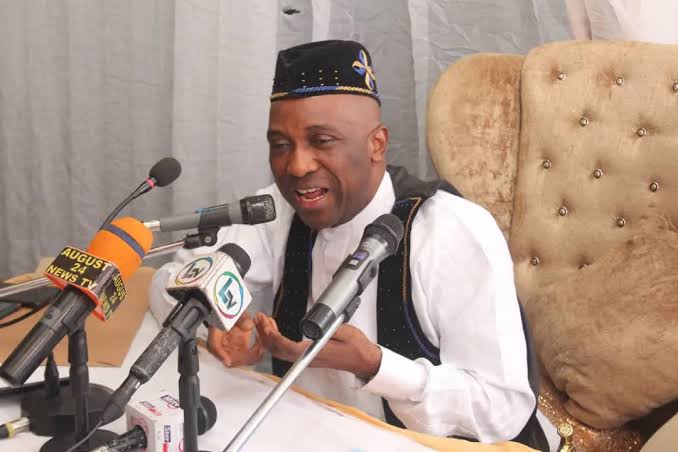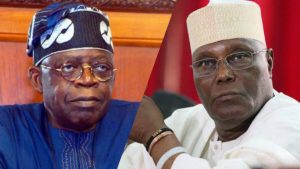
Nigeria, a country deeply rooted in faith, enters every new year with an air of spiritual anticipation. Prophecies from influential Christian leaders have long been guiding lights, offering hope, warnings, and assurances for the future.
These messages often shape the outlook of millions, motivating them to seek divine direction in their personal lives and in the nation’s journey. However, as we approach 2025, there’s been a subtle shift—prophecies are being shared with a quieter, more reflective tone. Could this shift be a sign of humility, reflection, or simply caution in a world increasingly skeptical of divine declarations? Maybe we can get into the prophecies for 2025 and explore a bit of their implications.
Pastor Enoch Adeboye, the General Overseer of the Redeemed Christian Church of God, delivered his message during the annual crossover service. This year, his prophecies seem to suggest that 2025 will be a year of breakthroughs, a time when prayers long awaited will finally be answered.
However, it won’t be all smooth sailing. Pastor Adeboye warns of an increase in opposition, particularly from those who mock and criticize the faithful. Yet, he reassures believers that perseverance will lead to ultimate triumph. He also significantly noted that, before September, believers will experience tangible evidence that serving God truly has its rewards.
Also, Apostle Joshua Selman, founder of Koinonia Global, proclaimed 2025 as “The Days of God’s Power.” This is a declaration that resonates with those who have been waiting for spiritual alignment and a revival of true faith. In his message, he emphasizes the importance of anchoring our faith in God’s sovereignty rather than relying on human strength.
The foundation of this year’s blessings, according to Selman, is fervent prayer and spiritual enlightenment. It’s not enough to merely wait for miracles; believers must actively seek a deeper relationship with God.
Differently, Primate Elijah Ayodele is known for his often sobering prophecies, and his outlook for 2025 is no different. He has warned of looming economic, political, and security crises, challenges that could deeply affect not only Nigeria but the world at large.
Ayodele sees rising taxes, increased tariffs, and a sharp depreciation of the naira, potentially reaching ₦1,950 to $1. With little hope for immediate reforms, he suggests that palliative measures will only fuel corruption and exacerbate Nigeria’s economic collapse.
Furthermore, Ayodele forecasts a rise in terrorism, banditry, and general unrest, particularly in regions like Zamfara, Yobe, and Abuja. On the political stage, Ayodele predicts possible impeachments and betrayals within the presidency, suggesting that instability will continue to affect Tinubu’s administration.
Now, as you know, prophecy is not limited to the clergy; sometimes, God speaks through ordinary individuals who are attuned to the signs of the times. Personally, reflecting on the year 2024, a year marked by both glory and heartbreak—I offer a twofold ‘prophecy’ for 2025: one directed at Nigeria and another at the Church who sees the prophecy.
As Psalm 35:23-28 of the Bible prophesies, it will be a year of vindication. The oppressed will rise, and justice will prevail. The enemies of Nigeria—poverty, corruption, and insecurity will face divine retribution.
But the Church must also face its own reckoning. Once a sanctuary of hope, the Church in Nigeria has become, in some circles, an object of mockery. Leaders have sometimes wielded power for selfish gains, scattering the flock instead of guiding them. We’ve seen disturbing news, like the shutdown of a church in Ibadan due to personal interests.
This should be a warning. If the Church does not lead with integrity, it risks further mockery and disillusionment. The stakes are high. If Church leaders fail to reform, they will lose the relics of moral authority left.
As Nigeria steps into 2025, whether one believes in prophecy or not, these messages shouldn’t serve as excuses for failure or stagnation. Regardless of our faith—whether Christian, Muslim, or atheist, we each have a role to play in shaping our nation’s future.
The government, too, has a significant role to play. It must not only listen or refuse to prophetic voices but also act in the best interest of the people, addressing economic, political, and security concerns with urgency and sincerity. Without action, all the prophecies in the world will not alter the course of history.
As I wrap up, one question persists: Will Nigeria rise above its challenges, or will it be swallowed by the very forces that seek to destroy it? For the Church, will 2025 be the year we embrace God’s justice, purge bad leaders, and restore integrity? Only time will tell, but one thing is clear: the power to shape the future is in our hands. What will you do with it?








